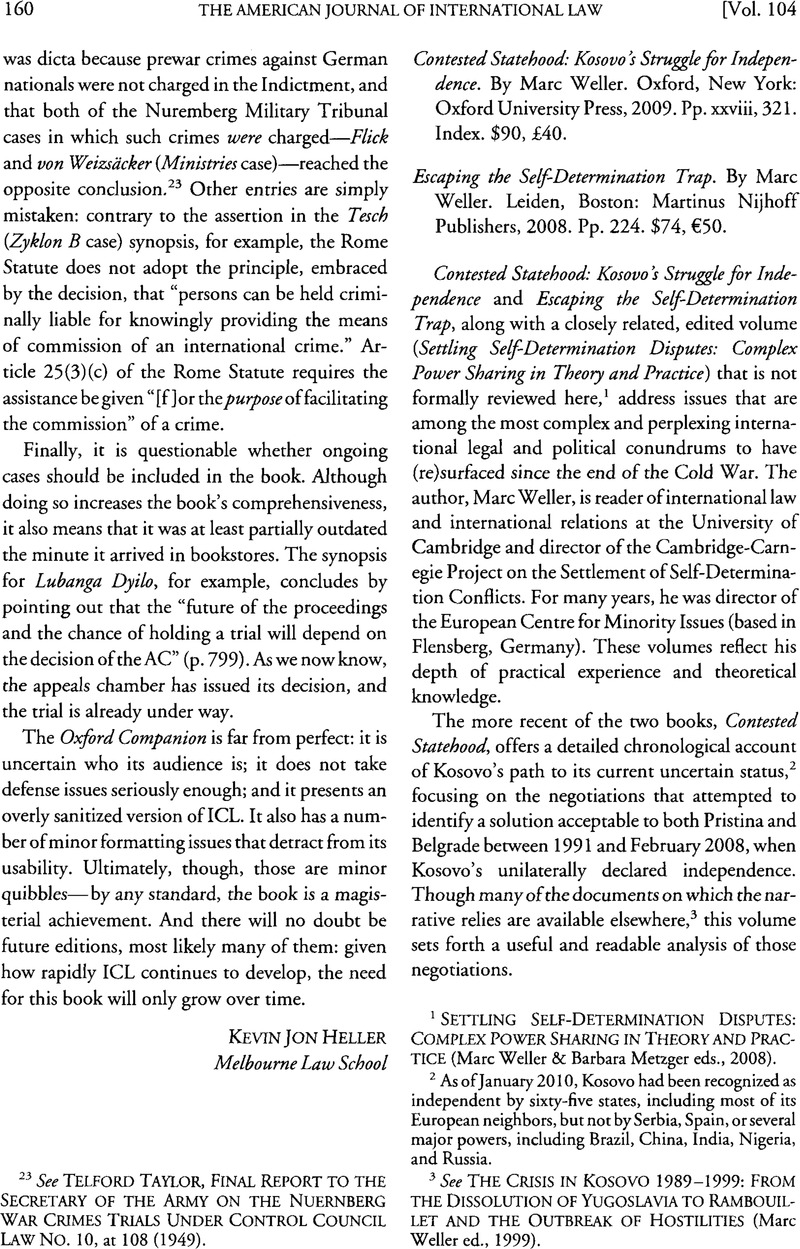No CrossRef data available.
Published online by Cambridge University Press: 27 February 2017

1 Settling Self–Determination Disputes: Complex Power Sharing In Theory and Practice (Marc, Weller & Barbara, Metzger eds., 2008)Google Scholar.
2 As of January 2010, Kosovo had been recognized as independent by sixty–five states, including most of its European neighbors, but not by Serbia, Spain, or several major powers, including Brazil, China, India, Nigeria, and Russia.
3 See The Crisis in Kosovo 1989–1999: From the Dissolution of Yugoslavia to Rambouillet and the Outbreak of Hostilities (Marc, Weller ed., 1999)Google Scholar.
4 Weller himself states that “it has to be admitted that this theory is as yet untested” since, even with respect to Kosovo, “the international community was generally reluctant to disrupt the continued territorial unity of the overall state.” Settling Self–Determination Disputes, supra note 1, at 39.
5 Declaration on Principles of International Law Concerning Friendly Relations and Cooperation Among States in Accordance with the Charter of the United Nations, GA Res. 2625 (XXV) (Oct. 24, 1970)Google Scholar.
6 Settling Self–Determination Disputes, supra note 1, at xii.
7 Jennifer, Jackson–Preece, The Role of Human and Minority Rights in Complex Power–Sharing, in Settling Self–Determination Disputes, supra note 1, at 627 Google Scholar.